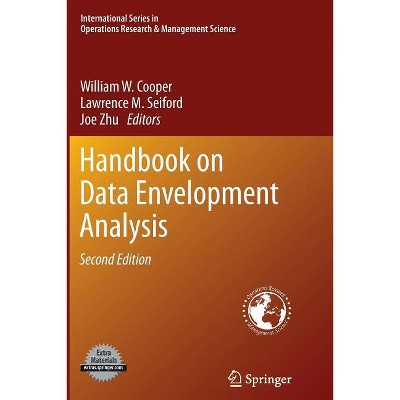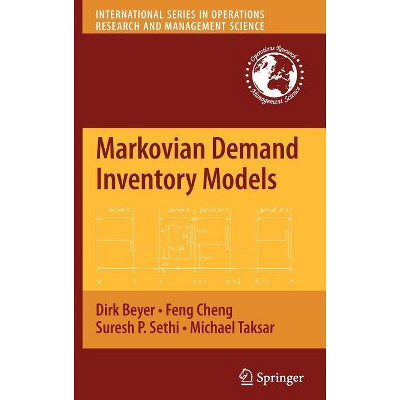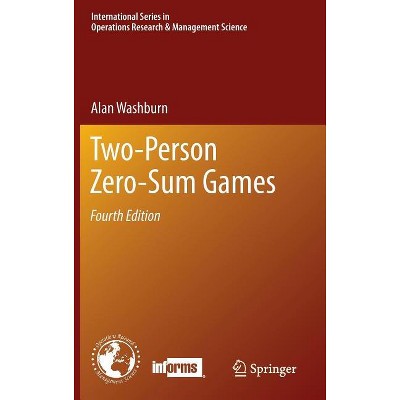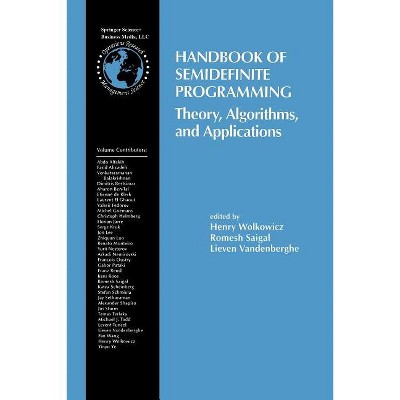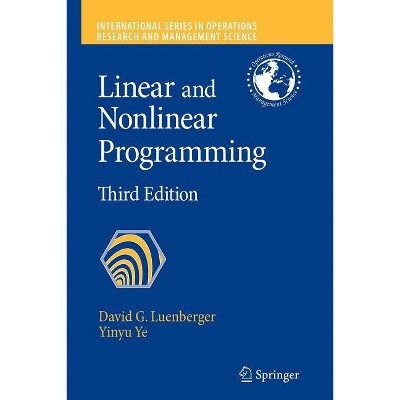Game Theoretic Risk Analysis of Security Threats - (International Operations Research & Management Science) by Vicki M Bier & M Naceur Azaiez

About this item
Highlights
- Game Theoretic Risk Analysis of Security Threats introduces reliability and risk analysis in the face of threats by intelligent agents.
- Author(s): Vicki M Bier & M Naceur Azaiez
- 242 Pages
- Technology, Industrial Engineering
- Series Name: International Operations Research & Management Science
Description
About the Book
This book introduces reliability and risk analysis in the face of threats by intelligent agents. Specifically, game-theoretic models are developed for identifying optimal and/or equilibrium defense and attack strategies in systems of varying complexity.
Book Synopsis
Game Theoretic Risk Analysis of Security Threats introduces reliability and risk analysis in the face of threats by intelligent agents. More specifically, game-theoretic models are developed for identifying optimal and/or equilibrium defense and attack strategies in systems of varying degrees of complexity. The book covers applications to networks, including problems in both telecommunications and transportation. However, the book's primary focus is to integrate game theory and reliability methodologies into a set of techniques to predict, detect, diminish, and stop intentional attacks at targets that vary in complexity. In this book, Bier and Azaiez highlight work by researchers who combine reliability and risk analysis with game theory methods to create a set of functional tools that can be used to offset intentional, intelligent threats (including threats of terrorism and war). These tools will help to address problems of global security and facilitate more cost-effective defensive investments.
From the Back Cover
Game Theoretic Risk Analysis of Security Threats introduces reliability and risk analysis in the face of threats by intelligent agents. More specifically, game-theoretic models will be developed for identifying optimal and/or equilibrium defense and attack strategies in systems of varying degrees of complexity. The book covers applications to networks, including problems in both telecommunications and transportation. However, the book's primary focus is to integrate game theory and reliability methodologies into unified techniques to predict, detect, diminish, and stop intentional attacks at targets that vary in complexity.
In this book, leading researchers combine reliability and risk analysis with game theory methods to create a set of functional tools that can be used by security personnel to offset intentional, intelligent threats (including the threats of terrorism and war). This means a comprehensive treatment of such problems must consider two aspects: (1) the structure of the system to be protected and (2) the adaptive nature of the threat (that is, beyond the static nature of the threat). The book provides a set of scientific tools for analyzing and applying game-theoretic reliability problems in the presence of intentional, intelligent threats. These scientific tools address problems of global safety and create more cost-effective defensive investments.
Review Quotes
From the reviews:
"This book is a collection of several articles on the analysis of defending infrastructure against terrorism attacks by means of game theory and reliability theory. ... well written and it can be useful for researchers in this field. It not only provides the state-of-the-art review of attack-defend models but also describes the algorithms in detail." (J. Li, Journal of the Operational Research Society, Vol. 61 (12), 2010)





